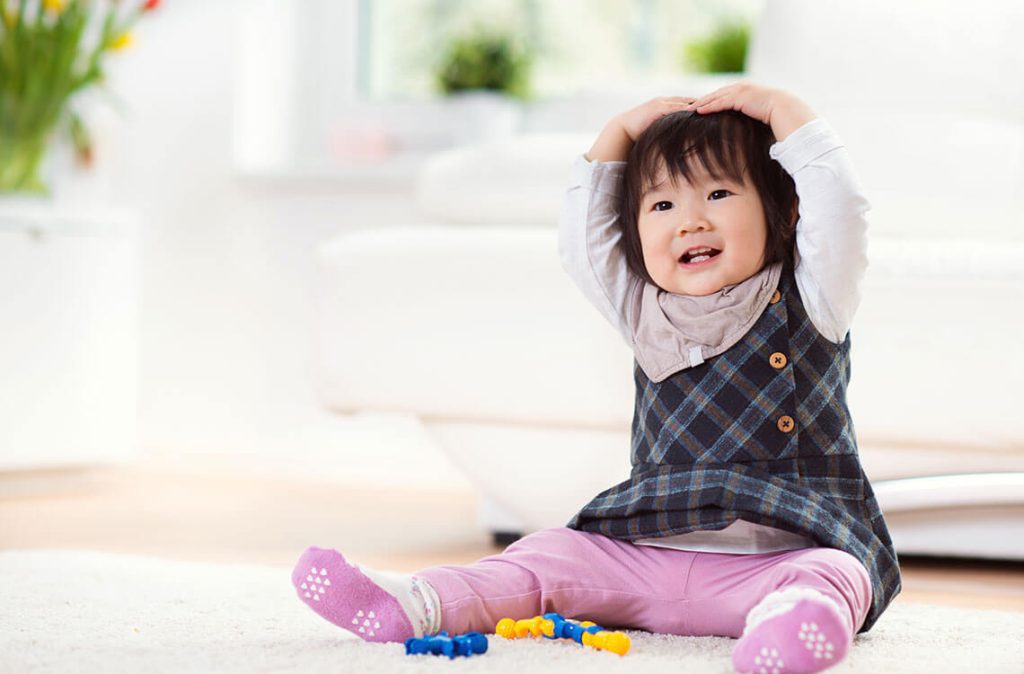Your child has just reached their second year of life and you couldn’t be happier!
But they’re no longer the same baby you once knew.
At 2 years old, a child is starting to experience new changes to their personality. And this is enough to make any parent concerned.
Understanding what is considered normal behaviour for a 2-year-old can help parents, caregivers, and educators provide appropriate support and guidance when needed.
In this article, we will explore key aspects of normal behaviour exhibited by 2-year-olds, including heightened emotions, curiosity, independence, pretend play, imitation, self-awareness, jealousy, and impatience.
6 Normal Traits in a 2-Year-Old
Heightened Emotions
At the age of 2, children experience a wide range of emotions, often with increased intensity.
They may express joy, excitement, frustration, and anger more readily.
Tantrums and emotional outbursts are not uncommon as they struggle to communicate their needs and navigate their feelings.
It is important for caregivers to offer emotional support, patience, and understanding during these moments. And teaching them healthy ways to express emotions.
However, frequent tantrums and fussiness can be stressful for parents.
Fortunately, there is a way to decode their body language and adjust your parenting to deal with these unpleasant outbursts.
Impatience
As a result of heightened emotions, your child may develop a short fuse.
2-year-olds often display impatience as they are still developing their ability to wait and understand concepts like delayed gratification.
They may become frustrated when their needs are not met immediately or when they cannot accomplish a task.
Caregivers can support their development by providing simple explanations and setting realistic expectations.
Additionally, offering age-appropriate distractions or alternatives.
Self-Awareness
Around the age of 2, children begin to develop a basic sense of self-awareness.
They recognise themselves in mirrors and pictures, and they may refer to themselves by name.
This emerging self-awareness is an important milestone in their emotional and social development.
Encouraging positive self-identity and fostering self-esteem is crucial during this stage.
Their sense of self will begin to solidify at this age and their interest will start to surface.
Independence
Around the age of 2, children strive for independence.
They want to exert control and assert their autonomy.
Your child may express this tendency in a variety of ways.
They may insist on dressing themselves, feeding themselves on their own, or attempting simple tasks like cleaning their room.
Unfortunately, these attempts may not always produce the intended effects.
Your child may end up making an even bigger mess. It’s important to not scold or punish them when this happens.
Encouraging your child’s autonomy within safe limits promotes important self-confidence and fosters a sense of accomplishment.
Imitation
Imitation is a significant aspect of a 2-year-old’s behaviour.
They observe and imitate the actions and behaviours of those around them, including adults and older children.
But this is by no means the limit.
They may even limit what they see on the television; fictional characters, cartoons, etc.
This can be dangerous if they choose to re-enact certain behaviours such as flying or using weapons.
So, be careful about what kind of media they are exposed too.
With the right stimuli, they can learn social norms, language skills, and problem-solving strategies.
Adults should model positive behaviour and provide a nurturing environment for imitation, as it forms the basis for their learning and social development.
Curiosity
Curiosity is a hallmark of 2-year-olds as they eagerly explore their environment.
They have a natural inclination to investigate objects, people, and their surroundings.
They may get a bit handsy with strange machinery or unfamiliar tools, often resulting in some irreparable damage.
Unfortunately, this is often translated by adults a ‘naughty behaviour’ or ‘acting out’.
Don’t scold your child if they do give in to these tendencies.
Keep away valuable items that they are likely to get their hands on.
Curiosity is a sign of their cognitive development and desire to understand how things work.
So don’t discourage this trait with bad parenting. Instead, encourage safe exploration and providing age-appropriate stimuli.
Pretend Play
Your toddler may engage in their own version of imaginative or pretend play.
This is often as a result of the learning process from their curiosity explorations and imitations.
And it is a natural part of how they interpret and make sense of their surroundings.
At 2 years old, your toddler may enjoy imitating real-life situations, such as pretending to be a doctor or cooking in a toy kitchen.
Pretend play supports their cognitive, language, and social-emotional development.
Joining in their play and providing appropriate props can enhance their creativity and communication skills.
Recognise the Normal Behaviour
It’s important to understand that while these traits may be the general norm, not every child will display all or any of them.
While this may not usually be a cause for concern, it’s important to rule out developmental delays, learning disabilities or other disorders that may affect how they grow.
With any luck, your two-year-old is just naturally different from their years due to upbringing and intrinsic qualities inherited from both or either parent.
As long as their happy and healthy, that is all that matters.
For more insightful stories and fun recipes, stay tuned to Motherhood Story!
